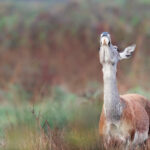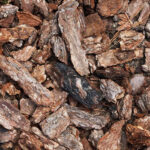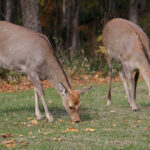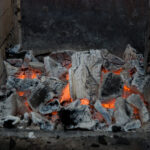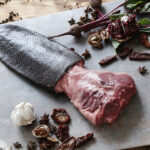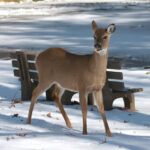If you see some deer stumble onto your property, you might be tempted to offer it a snack, reaching for whatever you have on hand.
There are plenty of videos online of people doing just this and offering a deer a piece of bread, but is bread bad for deer?
Deer are ruminants, meaning they digest their food very differently from humans, so they are able to digest different foods. Bread might be one of your favorite foods, and seem like a nice snack to a deer as well, but it might actually do them more harm than good.
In this article, we will tackle the question of whether bread is bad for deer, look at how it can affect deer individuals and herds, and consider some better alternatives.
Table of Contents
Is Bread Bad For Deer?
First, let’s look at whether bread is bad for deer’s health. Can they digest it? Does it offer any nutrients? Is it harmful?
Deer are sensitive to any food that contains a lot of simple carbohydrates. Bread is loaded with carbohydrates that deer can’t really make use of.
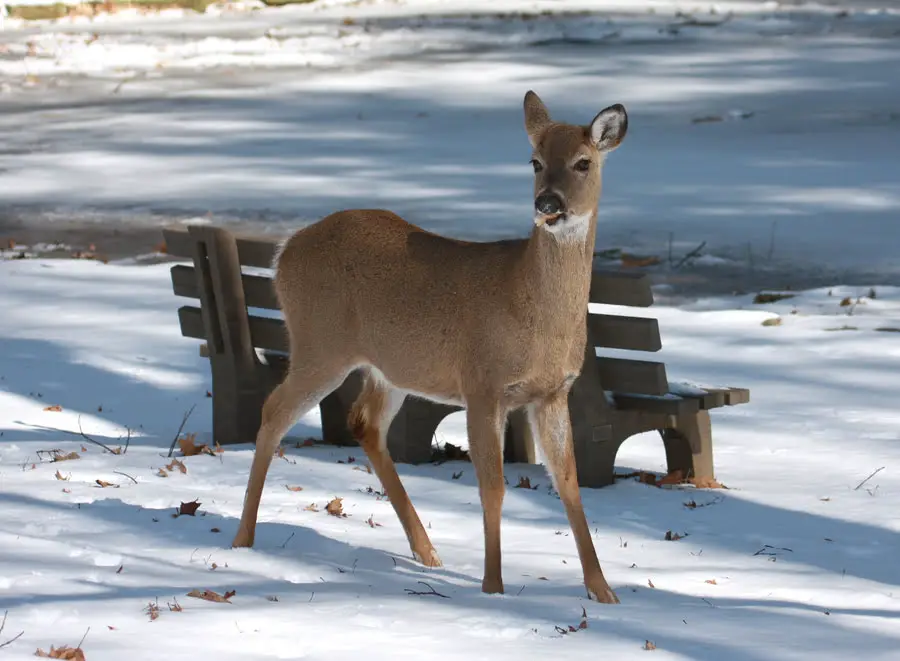
It can ultimately lead to indigestion or a condition called lactic acidosis–a build-up of lactic acid in the blood which drops the blood’s pH, leading to a host of symptoms. Lactic acidosis can be fatal.
Aside from the fact that bread can have negative health effects for deer, or even be fatal if they eat a lot of it, bread has very little nutrient benefit for deer.
In fact, bread (especially white bread) has very little nutrient benefit to anyone. Feed a human a ton of bread and their health will steadily decline.
Will deer eat bread? Of course. Deer love bread. It’s like candy to an animal that mostly chews on leaves and woody brush. That’s part of the problem–deer will eat a lot of bread if they can, which is when serious health issues start.
If you are going to feed them bread, a slice or two probably won’t do any harm, but be sure not to leave out a pile of bread or to feed an individual too much.
If you leave out a lot of bread, it is difficult to monitor how much each deer eats, and that pile of bread might be scarfed down by one hungry doe.
Other Foods To Avoid
Like bread, there are plenty of other foods that are rich in simple carbohydrates that deer can’t properly digest.
A common food group to avoid is anything corn-based. Feeding deer corn can cause all the same issues as bread, so please don’t give deer tortilla chips.
Better Alternatives–What Foods Are Safe To Feed Deer
Okay, so deer shouldn’t eat bread or corn but there’s a deer in your backyard or a herd on your property, and you really want to feed them something.
The best foods to feed deer are the foods that they eat in the wild–namely woody browse like oak, maple, hickory, or poplar.
Deer also love to eat broad-leaved plants (called forbs) like ragweed, wild lettuce, or asters. They also love masts like acorns, persimmons, or crabapples.
There are plenty of plants that deer love to munch on. You can look up the favorites for the deer in your area.
Okay, these are good choices, but they are better if you are trying to plant a food plot than if you’re trying to give a one-time snack.
If you want to feed a deer something that you might have in your pantry, consider reaching for the following foods rather than a loaf of bread:
- Specially formulated deer pellets
- Hay or alfalfa
- Cereal grains like whole oats
- Fruits and vegetables–apples, pears, carrots, cabbage, pumpkin, etc.
If you are going to feed a deer or a herd often, it is recommended to invest in better options like deer pellets or cultivating vegetation that deer love.
Be mindful not to overfeed deer with fruits or vegetables, as these foods like the fat and protein that deer need for a proper diet.
Should You Feed Deer?
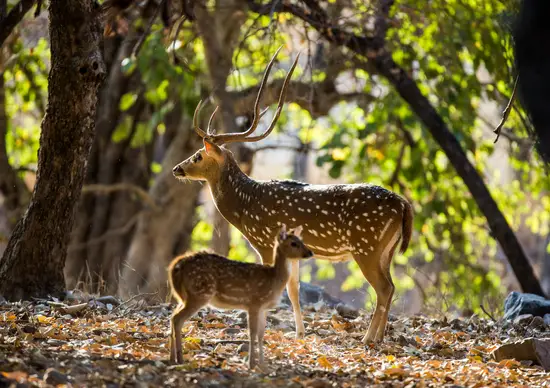
We’ve covered which foods to feed deer, but there is a broader issue with feeding deer. Feeding deer can have other impacts on the individual or the herd that you might not consider. It might even be illegal in your state.
Generally, it is best not to feed deer, unless you plan to start a careful, consistent feeding plan.
If you are trying to set out food so that you can get a glimpse of deer in your area, you should learn what time of night they are most active.
The Dangers Of Feeding Deer
Health effects of the food aside, regularly feeding deer can be dangerous for other reasons. First, feeding deer can habituate them to your food source, making them dependent on your food or causing them to seek out your food.
This can cause deer to damage property in search of food, cross roadways more often, increase the population beyond the habitat’s carrying capacity, or push them to feed or travel in more open terrain–making them more vulnerable to predators.
If you don’t provide enough food, you might cause a fight between deer, potentially leading to injury.
As well, feeding deer improper foods can affect their ability to get the nutrients they need season-to-season, which can impact their health in less obvious ways.
For example, regularly feeding a diet rich in fruits and vegetables might impact their ability to get enough protein leading up to the rut, or to store enough fat to make it through the winter.
Finally, feeding can increase the spread of disease among deer. This is one of the main reasons feeding and baiting is prohibited in many states.
Feeding can make multiple deer graze in close proximity, allowing them to swap saliva more easily and spread potentially deadly diseases like chronic wasting disease.
Regulations Around Feeding Deer and Baiting
Speaking of states prohibiting feeding deer, each state will have its own regulations around feeding and baiting.
Some states allow all feeding, others prohibit feeding and baiting entirely, and others allow feeding in some situations or counties but not in others.
Shock Effect has a list that concisely summarizes each state’s feeding and baiting regulations. If you are thinking about baiting or feeding deer, do some research into your state’s regulations.
Broadly, here is a list of states that allow feeding or baiting:
- Arizona
- Hawaii
- Kansas
- Nevada
- New Hampshire
- Mississippi
- New Jersey
- North Carolina
- Ohio
- Oklahoma
- Oregon
- South Carolina
- Utah
- Washington
These are the states that prohibit feeding and baiting entirely:
- Alabama
- Alaska
- Arkansas
- California
- Colorado
- Delaware
- Georgia
- Idaho
- Illinois
- Indiana
- Iowa
- Louisiana
- Maine
- Massachusetts
- Missouri
- Minnesota
- Montana
- Nebraska
- New Mexico
- Ney York
- North Dakota
- Rhode Island
- South Dakota
- Tennessee
- Vermont
- Virginia
- West Virginia
- Wyoming
These states take a mixed approach, allowing some feeding or baiting:
- Connecticut
- Florida
- Kentucky
- Maryland
- Michigan
- Pennsylvania
- Texas
- Wisconsin
Final Thoughts
Hopefully, after reading this article, you can appreciate that bread is not the best choice for feeding deer, and that feeding deer generally requires a fair bit of forethought.
If you are thinking about feeding deer regularly or for baiting purposes, look into your local regulations, and consider investing in some food sources that will be more beneficial than bread.
Thanks for reading!
